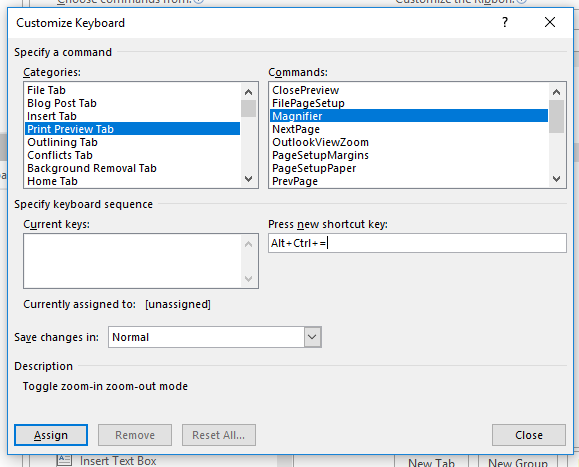- 3-minute read
- 27th November 2018
Handy Shortcuts in Microsoft Word
As proofreaders, we’re generally against shortcuts. After all, editing a document requires painstaking attention to detail, so we can’t afford to cut corners! Nevertheless, whether you’re writing or editing a document, knowing a few shortcuts in Microsoft Word is a good idea. Check out our suggestions below to save a little time and effort while you write.
Function Shortcuts
One type of shortcut is the function shortcut. These control common (and less common) commands, such as saving a document or cutting and pasting text. They include:
Function | PC Shortcut | Mac Shortcut |
Undo | Ctrl + Z | Command + Z |
Redo | Ctrl + Y | Command + Y |
Cut | Ctrl + X | Command + X |
Paste | Ctrl + V | Command + V |
Select all | Ctrl + A | Command + A |
Save | Ctrl + S | Command + S |
New document | Ctrl + N | Command + N |
Open a saved document | Ctrl + O | Command + O |
Insert comment | Ctrl + Alt + M | Command + Option + A |
Search document | Ctrl + F | Ctrl + F |
Find and replace | Ctrl + H | Ctrl + H |
Insert current date | Shift + Alt + D | Control + Shift + D |
Insert current time | Shift + Alt + T | Control + Shift + T |
In case you are new to Mac computers, the ‘Command’ key is sometimes represented by the ⌘ symbol. You can find out more about the Command and Option keys here.
Formatting Shortcuts
The other type of shortcut you are likely to need is a formatting shortcut. These control how text appears on the page. Some important options here include the following:
Formatting | PC Shortcut | Mac Shortcut |
Heading 1 | Ctrl + Alt + 1 | Command + Option + 1 |
Heading 2 | Ctrl + Alt + 2 | Command + Option + 2 |
Heading 3 | Ctrl + Alt + 3 | Command + Option + 3 |
Bold | Ctrl + B | Command + B |
Italics | Ctrl + I | Command + I |
Underlining | Ctrl + U | Command + U |
ALL CAPS | Ctrl + Shift + A | Command + |
Increase font size | Ctrl + ] | Command + |
Decrease font size | Ctrl + [ | Command + |
Align centre | Ctrl + E | Command + E |
Align left | Ctrl + L | Command + L |
Align right | Ctrl + R | Command + R |
Justify text | Ctrl + J | Command + J |
Single space lines | Ctrl + 1 | Command + 1 |
Double space lines | Ctrl + 2 | Command + 2 |
Set line spacing to 1.5 | Ctrl + 5 | Command + 5 |
Setting Custom Keyboard Shortcuts
But what if there isn’t a shortcut for what you want to do in Microsoft Word? Good news! You can create your own shortcuts as required! In Word for Windows, you can do this as follows:
Find this useful?
Subscribe to our newsletter and get writing tips from our editors straight to your inbox.
Subscribe to Beyond the Margins and get your monthly fix of editorial strategy, workflow tips, and real-world examples from content leaders.
- Go to File > Options > Customize Ribbon > Keyboard shortcuts…
- Click Customize to access the shortcuts menu
- Find the function required under in the Categories and Commands lists
- Go to Press new shortcut key and hold down a key combination
- Select whether to save the shortcut to the template (so that it is usable in all documents) or just the current document in the Save changes in menu
- Click Assign to assign the shortcut

You can assign shortcuts in Word for Mac, meanwhile, via the standard shortcut options in Mac OS X.




